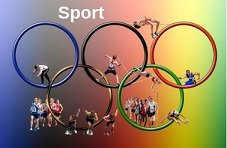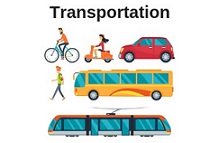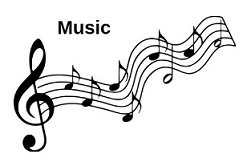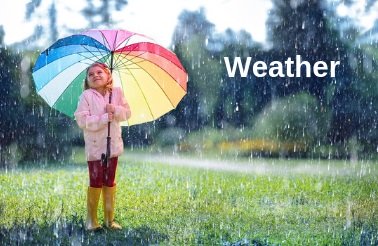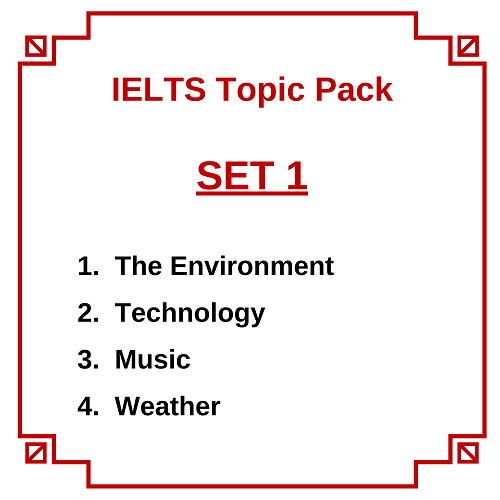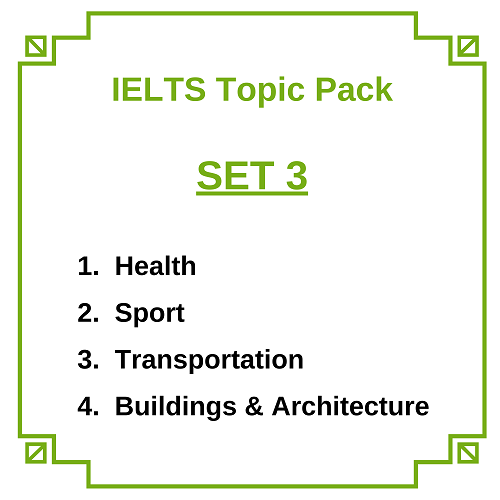Sports Vocabulary
This page of
sports vocabulary has been carefully created to help you prepare for your IELTS
exam. Sport is an important part in many of our lives and is a topic that
often comes up in the test.
Whether we play a sport ourselves, are a fan who likes to watch sport either live or on TV, or we have little interest in sport, we all have an opinion on it and the famous athletes that regularly appear in the media.
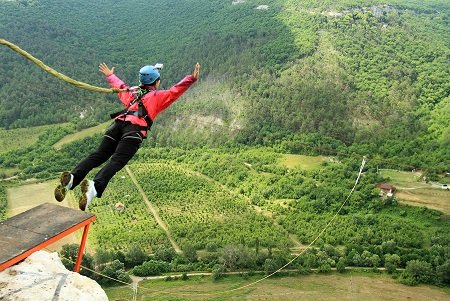 Bungee jumping is an extreme sport.
Bungee jumping is an extreme sport.Sport is a subject that could come up in any part of your test, so learning some sports vocabulary is certainly to be recommended. You might also want to talk about it when answering questions about your hobbies, leisure activities or school days.
Here’s a quick overview of some of the things you could be asked about:
- Your interest in sport
- Your experience of playing a sport
- The popularly of sport in your
country
- Sports facilities in your town or city
- Sport in schools
- Sports celebrities as role models
- Money and sport
- The importance of international sporting events
To ensure that you’re well prepared to answer any sport-related question, I've included four things on this page:
- IELTS-style questions on the topic of sport and fitness
- Sample answers
- A list of common sports vocabulary with definitions & sample sentences
- Links to online reading and listening resources
You’ll find PDF downloads of both the questions and sample answers and the sports vocabulary list at the bottom of the respective sections.
The questions relate to the Speaking test because this part of the exam offers the broadest range of possible questions on the topic of sport. They give the best opportunity for me to demonstrate the vocabulary and for you to practise using it.
I’ve included IELTS-style questions and answers for all three parts of the Speaking test. I've highlighted keywords and phrases in bold.
You'll find these words and phrases, and many others, in the vocabulary list beneath. The list also includes explanations and sample sentences and there’s an audio to listen to the pronunciation.
The sports vocabulary list contains words and phrases relevant to all parts of the IELTS exam.
Finally, at the bottom of the page I've added links to topical articles, short videos and podcasts that will help you to improve both your sports vocabulary and your reading and listening skills.
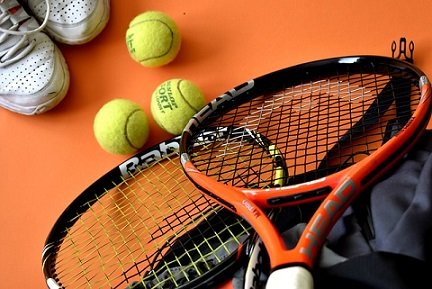 You need special kit and equipment to take part in many sports.
You need special kit and equipment to take part in many sports.
IELTS-Style Speaking Test Questions & Answers
Common sports vocabulary is highlighted in bold.
Part 1
1) Do you like sport?
I’m a great sports fan. I sometimes watch on it TV but I prefer actually taking part in sport.
2) What sports did you do at school?
Sport was my favourite thing at school. In the autumn and spring terms I played hockey and during the summer months we did athletics. I even enjoyed cross-country running which most people hated.
3) How important is keeping fit to you?
Keeping fit is and very important part of my life. In fact, my friends would say I’m a bit of a fitness fanatic. It helps to keep me healthy and I also work out to be in good shape for taking part in my sport of rowing.
4) What do you do to keep fit?
I do several things to keep fit. I take weight training classes, go jogging, train on the water with my rowing crew and walk my dog twice a day.
5) Is violence a problem at sporting events in your country?
There used to be a serious problem with football fans getting involved in fights both inside and outside stadiums but a lot has been done to stop this happening. It’s much safer to go to matches now and they have become family events again.
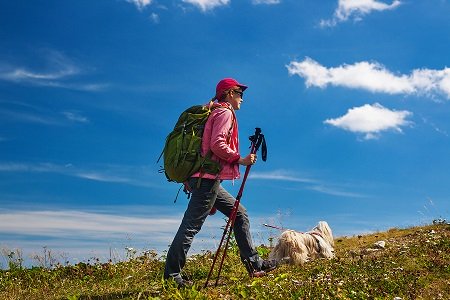 Walking is excellent exercise & really helps you to keep fit.
Walking is excellent exercise & really helps you to keep fit.Part 2
Describe
a sports club you belong to or used to belong to.
You should say:
- what club it is
- when you joined
- why you joined
and explain the benefits of belonging to your club.
I belong to Barnstaple Pilot Gig Club. It’s a rowing club
but we row a very special type of boat called a pilot gig. They’re traditional
wooden boats, about 30 foot long and with six rowers and a cox. In the old
days, these gigs would have been used to take a pilot out to sailing ships
coming into port and they were also used as lifeboats. Now gig rowing has
become a competitive sport which is gradually
growing in popularity.
I joined the club when it started back in 2010. I’d wanted to row pilot gigs from the age of 12 when my family started taking holidays in the Isles of Scilly where gig races between the islanders took place every Friday evening in the summer. I loved going out on the passenger boats to watch and cheer on the crews. As soon as I heard about a gig club starting in my own town I jumped at the chance to join.
Back when I was young, I never imagined that one day I’d be racing in the Pilot Gig World Championships in the Isles of Scilly but I’ve done so with my club several times now. It’s an amazing experience with over 140 boats taking part. …a bit different to all those years ago when I used to watch just seven or eight boats racing while on my holidays.
Although we mostly row on the river, we also train on the sea to prepare us for rowing in competitions. We compete in regattas all year round but the main season is from March to September.
Rowing is very strenuous exercise and you need a high level of aerobic fitness as well as strength. We train hard both on the water and in the gym and I really enjoy working out and training with the other club members. We’re all close friends and often enjoy social activities together. I’d go as far as to say that the club is my social life as well as my sport.
I guess that sums up the main benefits of belonging to my club. It contributes so much to both my physical and mental well-being that I can’t imagine it not being a part of my life.
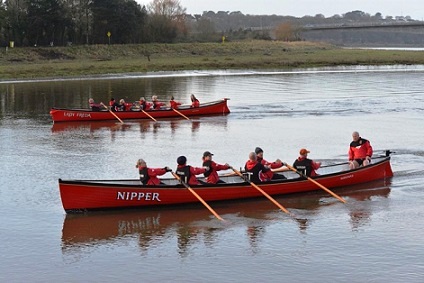 Pilot gig boats.
Pilot gig boats.Part 3
1) Do you think people in your country exercise enough? If not, why?
In my opinion, the majority of adults in the UK definitely don’t get enough exercise. You only have to look around at the level of obesity to see that this is true. I’d go as far as to say that the majority of people are very out of condition and never do any strenuous exercise.
I really don’t understand why this is the case. There’s more knowledge than ever before about the advantages to both physical and mental health of keeping fit, and the negative effects of not taking enough exercise are well-known.
Every town has a range of sports facilities including fitness centres, gyms and swimming pool for people to use. Or they could just walk more or maybe cycle to work. There really isn’t any excuse not to take at least some exercise every day.
Many doctor’s surgeries even run their own fitness programmes or will recommend some that you can join to help you get in shape. I wish more people would take their fitness seriously and take advantage of the opportunities to stay healthy.
2) Do you think competitive sport should be part of the school curriculum?
Yes, I definitely think it’s important for children to take part in competitive sports at school. In recent years there’s been a trend of having non-competitive sports days so that less sporty kids can take part without always being the loser. I disagree with this.
I was good at sport and it was the only thing I really achieve a high level of success in at school. This was extremely important to me, so it works both ways. Life is competitive and schools need to help children to cope with this.
I’m not saying that those children who hate sport and always fail at it should put through this negative experience. Rather, I think schools need to rethink how sport is taught. There is such a huge range of sporting activities to choose from these days that I truly believe there’s something every child can enjoy participating in. Schools need to provide the opportunities.
3) What are the benefits of international sports events?
I think there are several major benefits of international sporting competitions. Firstly, it helps to build relationships between people of different nationalities and cultures. This is so important in our divided world. While the competitors may be rivals during competitions, there is friendship when the contest is over. You can see this and the respect they have for each other when you watch big sporting events on TV.
Secondly, when top international athletes compete together, they motivate and inspire each other. This is why new world records are often set at events such as the Olympics and many athletes achieve personal bests.
Finally, international sporting events encourage people to get involved in sport themselves, especially the younger generation. The TV coverage of competitions for disabled sportspeople in recent years has led to a massive increase in people with disabilities taking up sports which is life-changing for them.
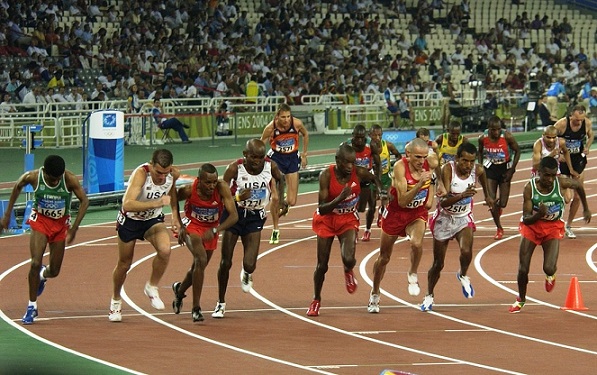 An international athletics meeting.
An international athletics meeting.Click this link to get a PDF download of these practise questions & sample answers.
Sports Vocabulary
* Important
- Do not try and learn this list of sports vocabulary.
- Record these in your vocabulary notebook and practise using them regularly.
I recommend that you create your own answers to the Speaking questions on this page. You will find many other IELTS-style practise questions by searching online.
For help on how to learn vocabulary, what to learn and how to record it, visit these pages:
How to Learn Vocabulary for IELTS
Top 6 Types of IELTS Vocabulary & Topic Word Lists
Sports Vocabulary – Common Words & Phrases
Sports Vocabulary Set 1: Key definitions
sport – an activity involving physical exertion and skill in which an individual or team competes against another following rules
- Jamie always struggled with his school work but was excellent at sports.
extreme sport – a sport that is exciting but also dangerous such as skydiving
- Esther became interested in extreme sports when she tried bungee jump on a trip to New Zealand.
fitness – the condition of being physically fit and healthy
- I’m trying to improve my fitness by walking to work each day.
Sports Vocabulary Pronunciation
Sports Vocabulary Set 2: Fitness
to keep fit – to keep the body in good physical condition by exercising regularly
- I do several things to keep fit but dancing is the one I enjoy the most.
fitness fanatic – to be obsessed with keeping fit
- Dylan is a real fitness fanatic and goes to the gym every day.
to exercise – to do an activity requiring physical effort, generally in order to improve health and fitness
- I make sure that I exercise every single day even if it’s only taking the dog for a walk.
strenuous exercise – exercise that needs a lot of physical effort.
- I used to hate strenuous exercise until I took up running to lose weight and now really enjoy it.
to get into shape – to become fit
- Jae Hwa was so determined to get into shape that she started cycling to work.
to take up (a sport) – to start playing a sport.
- I have always wanted to take up archery and am going to join the new club that has just started in my area.
to warm up – to prepare for strenuous activity by doing gentle exercise first
- We always warm up before we start our workout session in the gym.
to cool down – to end a session of strenuous activity with gentle exercises to allow the heart rate to come down and the body return to a near resting state.
- It’s important to cool down after exercising hard as this helps to prevent injury.
to be out of condition – to be not physical fit (unfit)
- My friend is so out of condition that she gets out of breath walking up the stairs.
training – to work hard at physical exercise and skills in order to be fitter and better at a sport
- I often don’t feel like training but I know I have to if I want to win more races.
to train hard – to train with a lot of effort and passion
- The team trained hard before the match and beat the other team easily.
fitness programme – a planned timetable of activities to help someone improve their health and physical condition
- Following a fitness programme at my local gym helped me to stay motivated as I got back into shape after having a baby.
aerobic fitness – having strong heart and lungs and being able to carry out sustained exercise such as jogging, swimming or cycling
- In order to be a competitive rower, you need a high level of aerobic fitness.
to work out – to exercise, usually in a gym.
- Dhruv worked out at the gym three evenings a week.
a workout – a session of exercises, usually in a gym.
- Cressida found that a workout at the gym helped her de-stress after a hard day at work.
to bulk up – to make your body bigger and heavier, especially by gaining more muscle
- He felt so much stronger since he started working out with weights and his body was really beginning to bulk up.
boot camp – a short, intensive, and rigorous course of training
- William couldn’t believe he’d agreed to go along to the boot camp with his friend. He didn’t even like exercising.
Sports Vocabulary Pronunciation
Set 3: Sports facilities
sports facilities – places and buildings used for sporting activities such as swimming pools and running tracks
- There are excellent sports facilities at my university which is one reason I chose it.
stadium – a large building, with tiers of seats for spectators, where people watch sports events such as football matches or athletics
- The stadium was buzzing with excitement as the two teams came out onto the pitch for the start of the match.
fitness centre – a place where people go to do physical exercise; usually has a gym, weights equipment and rooms for exercise classes
- I can’t wait for the new fitness centre to open as they’re advertising some great exercise classes.
sports centre – a building where people can do a range of different sports
- We have a great sports centre in our town which offers everything from martial arts training to indoor bowls.
gym – a large hall or room with special equipment for doing physical exercises
- If it’s raining when I want to go running, I run on the treadmill in the gym instead.
an athletics track – a sporting facility with a track for running and areas for other sports such high jump, long jump and javelin throwing
- Each summer we have a big competition for all the schools in our area down at the local athletics track.
pitch – a surface on which a particular sport is played, such as a football pitch or baseball pitch, that is marked out with lines
- Victor felt nervous as he waited with his team to go out onto the pitch for the first big match of the season.
court – a surface where you play sports such as tennis, badminton and squash
- Shelley was playing an excellent opponent who made her run from one side of the tennis court to the other throughout the match.
swimming pool – an area of water, often in a building, created for swimming in
- My mum took me to the swimming pool every Saturday morning when I was a child.
changing room – a room in a sports building or school where people can change their clothes before exercise
- The changing room smelt awful with all the sweaty bodies in there after the football match.
locker room – a changing room where people can leave their clothes in a small lockable cupboards
- Matilda put in a complaint as many of the lockers in the locker room were broken.
Sports Vocabulary Pronunciation
Set 4: People in sport
athlete – a person who is very good at sports or physical exercise, especially one who competes in organised events
- Kofi trained hard for many years to become one of the top athletes in his country.
coach – an expert who trains someone learning or improving a skill
- The coach made them focus on their tackling skills as this was a weakness in their game.
trainer – similar to a coach but often relates more to the fitness side of training
- Janine has been concerned about working with the new trainer but her performance improved considerably after just one month.
personal trainer – a coach or trainer who works with someone on a one-to-one basis
- If you find it hard to stay motivated when working out on your own, I recommend hiring a personal trainer.
competitor – someone who takes part in a sports competition
- There were nearly 100 competitors in the cycle race, so Megan was delighted to come tenth.
referee – a person who is in charge of a sports game and who makes certain that the rules are followed
- It’s hard being a referee as not everyone agrees with your decisions.
umpire – a referee in sports such as tennis and cricket
- The umpire ruled that the ball was out of court.
goalkeeper – the player whose job it is to stop the ball going into the goal in games such as soccer and hockey
- Our goalkeeper was the star of the match after saving two goals in the penalty shootout.
Sports Vocabulary Pronunciation
Set 5: Sporting achievements
a personal best – to get a better score or achieve a faster time in your sport than you’ve ever done before
- Although Hicham didn’t win the 400m, he achieved a personal best of 45.38 seconds so was delighted with his performance.
to set a record – to achieve the best result in a particular sport
- I knew my jump was a good one but I couldn’t believe it when I learnt I’d set a new long jump record for my college.
to break a record – to do something that is better, faster, etc. than anything that has been done before
- The crowd in the stadium went wild when Usain Bolt broke the 200m record yet again.
prize – a reward that you get for being successful in a sports competition
- Fahmi didn’t compete for the prize money but because she loved playing tennis.
Sports Vocabulary Pronunciation
Set 6: Sports & fitness activities
athletics – the sport of competing in track and field events, including running races and various competitions in jumping and throwing
Athletics sport:
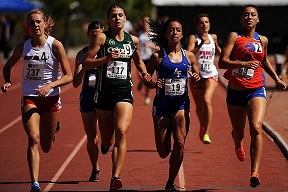 running
running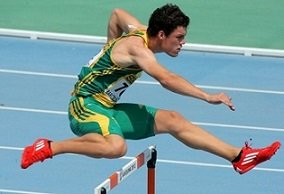 hurdles
hurdles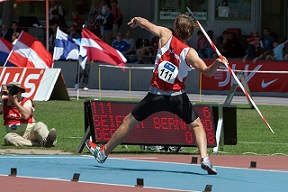 javelin
javelin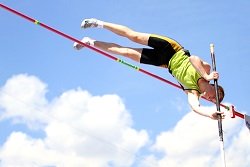 pole vault
pole vault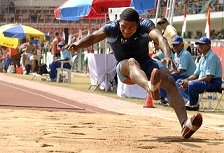 long jump
long jump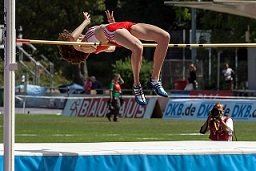 high jump
high jump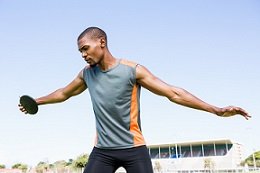 discus
discus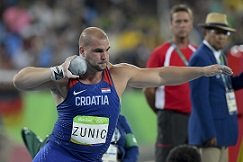 shot put
shot putSports Vocabulary Pronunciation
Ball sports:
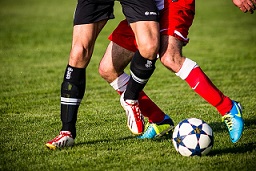 soccer/football
soccer/football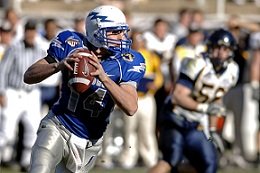 American football
American football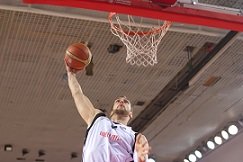 basketball
basketball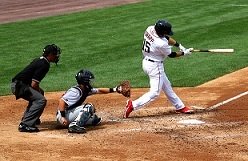 baseball
baseball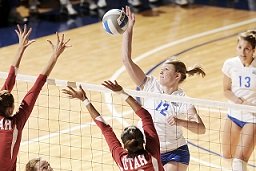 volleyball
volleyball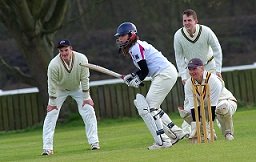 cricket
cricket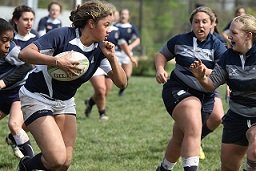 rugby
rugby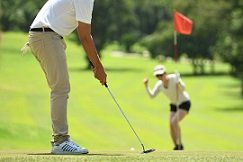 golf
golf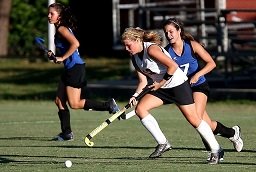 hockey
hockeyRacket sports:
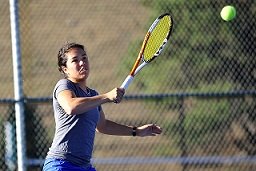 tennis
tennis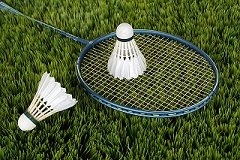 badminton
badminton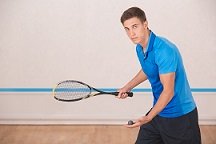 squash
squashSports Vocabulary Pronunciation
Water sports:
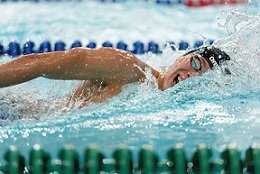 swimming
swimming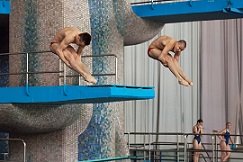 diving
diving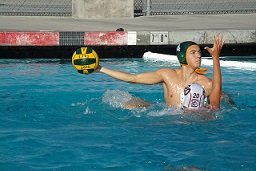 water polo
water polo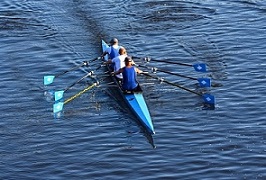 rowing
rowing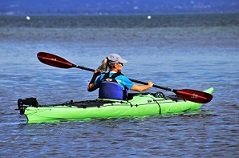 kayaking
kayaking canoeing
canoeing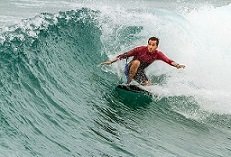 surfing
surfing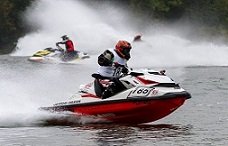 jet skiing
jet skiing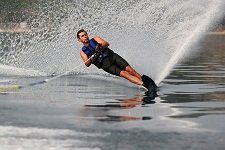 water skiing
water skiing sailing
sailing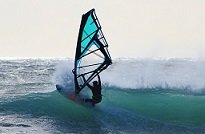 wind surfing
wind surfing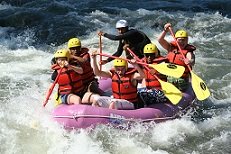 rafting
rafting scuba diving
scuba divingSports Vocabulary Pronunciation
Winter sports:
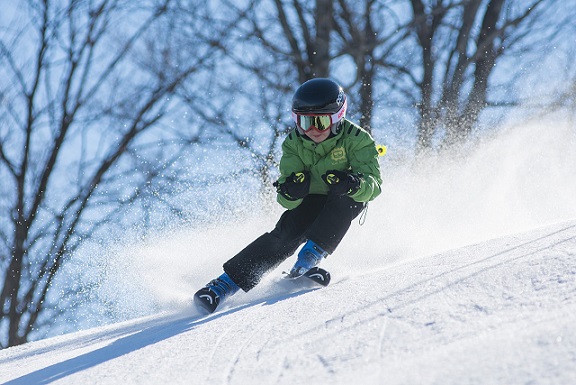 skiing
skiing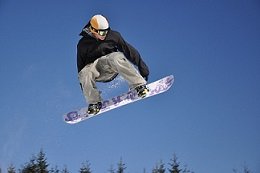 snowboarding
snowboarding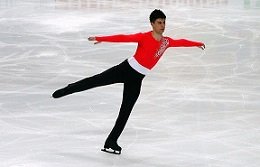 ice skating
ice skatingOther sports & fitness activities:
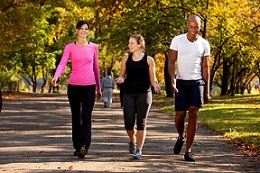 walking
walking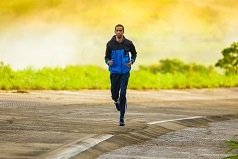 jogging
jogging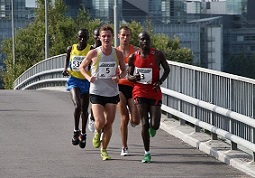 marathon (42.195 km)
marathon (42.195 km)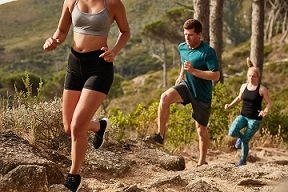 cross-country running
cross-country running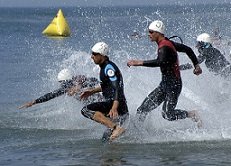 triathlon - swim, cycle, run
triathlon - swim, cycle, run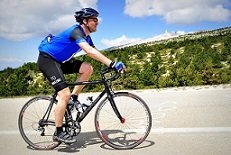 cycling
cycling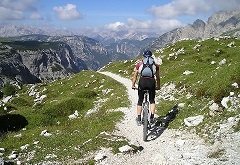 mountain biking
mountain biking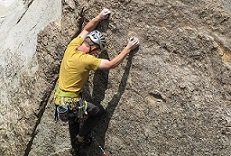 climbing
climbing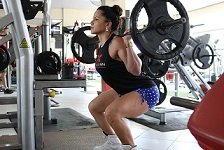 weightlifting
weightlifting weight training
weight trainingaerobics – vigorous exercise that strengthens the heart & lungs
gymnastics – exercises on bars, beam, floor, rings & vaulting horse
martial arts – fighting sports that make both your body and mind stronger such as karate
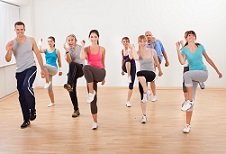 aerobics
aerobics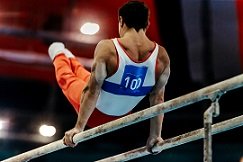 gymnastics
gymnastics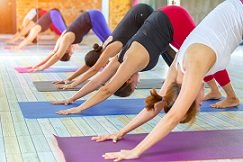 yoga
yoga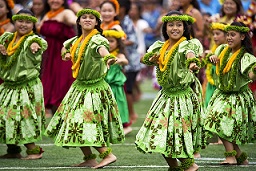 dancing
dancing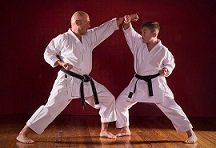 martial arts
martial arts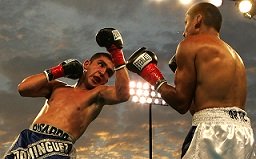 boxing
boxing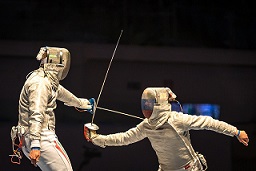 fencing
fencing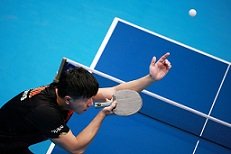 table tenis
table tenis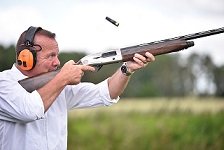 shooting
shooting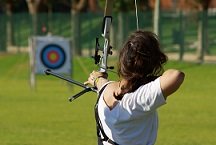 archery
archery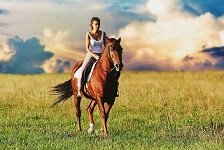 horse riding
horse riding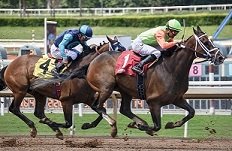 horse racing
horse racing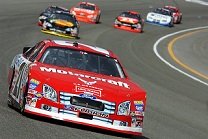 motor racing
motor racing motorcycle racing
motorcycle racingSports Vocabulary Pronunciation
Set 7: Other sports vocabulary
equipment – the items necessary to work out or do a sport
- My gym is going to install some new equipment as some of it is old and worn out.
kit – special clothing and equipment that you use when you take part in a particular activity, especially a sport
- Mandy was furious when her son decided to give up playing football just after she’d bought him some new kit.
membership – the state of belonging to a group, a club or organisation
- Like many people, I take out a gym membership every New Year but have usually stopped going by February.
a home game – a sports match played in the teams own stadium
- I’m so glad my team has a home game this week as my car has broken down.
an away game – a sports match played in the opposing team’s stadium
- I don’t enjoy playing away games as much as home games as fewer of our own supporters are there.
supporter – someone who admires a sports team and watches them play regularly
- I’ve been a Manchester United supporter all my life and watch live games wherever I can.
a fan – someone who admires a specific person, sport or a sports team
- I’m a huge rugby fan and especially enjoy watching the international matches on TV.
a competition – an event or contest in which individual people or teams take part in order to establish who is best
- The coach was pleased with the way the new team was playing and entered them in the under 12’s competition.
contest – a competition, often involving two people
- Tosin was very nervous before the contest as he was up against a very good boxer from Cuba.
match – a sports competition in which two people or teams compete against each other
- They were really disappointed to have lost the match after being ahead in the first half.
championship – a large and important competition
- She was overjoyed to be selected to run for her country in the world championships.
tournament – a competition for teams or single players in which a series of games is played, and the winners of each game play against each other until only one winner is left
- The school team arrived home with a large trophy after winning the regional hockey tournament.
regatta – a sporting event involving boats
- Gregor has only been learning to sail for six months when he took part in his first regatta.
Sports Vocabulary Pronunciation
versus/v – against, used to denote competing teams or players in a sports contest
- The final of the men’s tennis championship was Nadal versus Federer.
to compete – to take part in a competition or sports event
- Jolene was so excited about competing in her first professional golf competition.
competitive – involving competition; wanting very much to win or be more successful than other people
- Danny was very competitive and trained harder than anyone else in the effort to be the best hurdler at his county.
league – a group of sports teams who take part in competitions between each other over a period of time
- If they won the next game, they would end the season top of the league.
to score – to get a point or goal in a game or sport
- Baz scored in the last minute of the match and won the game for his team.
the score – how many points an individual or team has
- The final score was 3-1 to the home side so there was much celebration in the town that evening.
a draw – when two competitors or teams get the same score
- When the final whistle blew the score was 34-34 so the basketball match was a draw.
reserve – an extra player who is ready to play if needed
- Narong was pleased to be selected as a reserve but really hoped he’d have a chance to play.
to drop out – to not do something that you were going to do, or to stop doing something before you have finished
- She was leading the race until she pulled a muscle and had to drop out in the third lap.
to pull out – to withdraw before an event or competition
- The crew had to pull out of the regatta after they all fell ill with a stomach bug.
injury – when part of the body is damaged or hurt
- Lena was favourite to win the golf tournament until she picked up a shoulder injury.
season – a period of the year when a particular sport is played
- I love it when the cricket season comes round each year as it means that summer has finally arrived.
a season ticket – an entry ticket for all of a team’s home games during a specific season
- For my thirtieth birthday, my family bought me a season ticket to watch my favourite soccer team play.
amateur – a person who engages in a pursuit, especially a sport, on an unpaid basis
- Although he only played rugby in an amateur team, it was his dream to turn professional one day.
professional – a person is paid for playing a sport
- Professional racing drivers get paid vast sums of money.
Sports Vocabulary Pronunciation
Set 8: Sports idioms
blow away the competition – to easily beat the opposing competitor or team
- I thought it was going to be a challenging race but he blew away the competition.
neck and neck – when two competitors are level with each other and have an equal chance of winning
- Coming down the home straight, the two front-runners were neck and neck until Yoshi edged ahead as they reached the finish line.
front-runner – the person or team considered most likely to win
- There were some excellent gymnasts in the competition but Nadia was definitely the front-runner and the one to beat.
to get second wind – to experience renewed energy after a period of fatigue
- He began to struggle in the final stages of the marathon but hearing the crowd cheer him on, he got second wind and finished in the top twenty.
underdog – a competitor thought to have little chance of doing well or winning
- The British skiing team were definitely the underdogs in the competition so everyone was shocked when they got third place.
Sports Vocabulary Pronunciation
Click this link to get a PDF download of this list of sports vocabulary.
Other Useful Sports Vocabulary
Whilst this list of sports vocabulary includes the most common sports, there are also others you might know about or take part in. In your country, you may even have sports that are unique to your culture. Add any that you are likely to want to talk about to your list.
It’s also a good idea to create your own list of sports vocabulary related to sporting or fitness activities you currently do or have done in the past so that you are ready to talk about them if asked.
Most sports and fitness activities have their own set of vocabulary – equipment, kit, specialist terms, etc. Include the most important words.
You’ll also find more sports vocabulary and fitness words on the Health Vocabulary page.
Ways to Improve Your Sports Vocabulary
One of the best ways to improve your vocabulary is through reading. Watching topic related YouTube videos and listening to podcasts is also hugely beneficial.
Here are some online resources I recommend.
TED Talks
TED Talks are short videos with a powerful message and are generally very interesting. They’re ideal for improving your vocabulary and give valuable listening skills practise.
Search TED Talks - Sport to help you improve your sports vocabulary.




